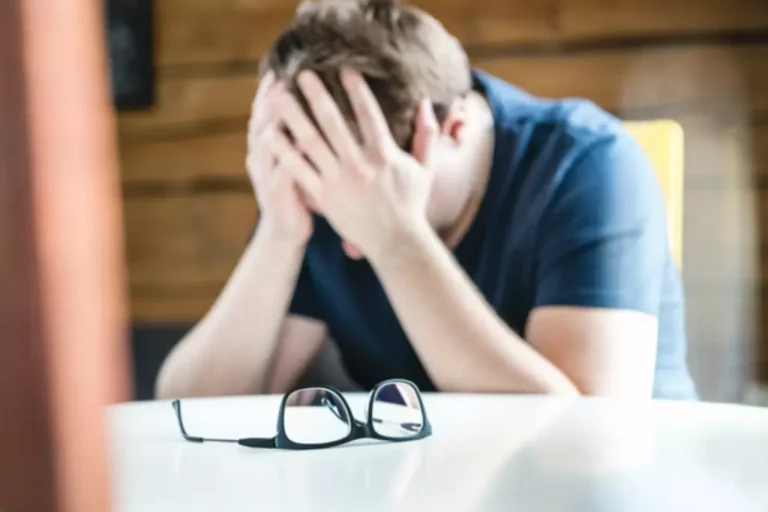Content
Those ways are essential skills for everyone, whether recovering from addiction or not—it’s just that the stakes are usually more immediate for those in recovery. Many experts believe that people turn to substance use—then get trapped in addiction—in an attempt to escape from uncomfortable feelings. Such a plan helps minimize the likelihood of lapses in the future. It is important to know that relapse https://ecosoberhouse.com/ does not represent a moral weakness. It reflects the difficulty of resisting a return to substance use in response to what may be intense cravings but before new coping strategies have been learned and new routines have been established. For that reason, some experts prefer not to use the term “relapse” but to use more morally neutral terms such as “resumed” use or a “recurrence” of symptoms.
“He alluded to the fact that [using] a little bit of drugs isn’t going to work … and I think he’s right. I’ve spent the last six years researching and understanding alcoholism, addiction, and how people get sober. I touched on this earlier with the happy hour example. If bars or boozy hangouts are triggers for you when you’ve had a stressful day, then don’t go anymore when you feel stressed or worn out.
Get Your Life in Order: 5 Tips for Finding The Best Insurance Agent
Seek the support of loved ones and humbly do whatever it takes to reclaim sobriety. Many who relapse are not
consciously aware of the warning signs of relapse even as they are
occurring. It happens because something
is missing in the recovery program. Those who are successful in recovery learn to recognize their own
particular warning signs and high-risk situations.
A journey that’s just as unique as each person who is sober. But what’s common to all recovery journeys is the fact that it is ongoing work. Also critical is building a support network that understands the importance of responsiveness. Not least is developing adaptive ways for dealing with negative feelings and uncertainty.
Find Balance in Your Life
Inventory not only the feelings you had just before it occurred but examine the environment you were in when you decided to use again. Sometimes nothing was going on—boredom can be a significant trigger of relapse. Such reflection helps you understand your vulnerabilities—different for every person. Armed with such knowledge, you can develop a contingency plan to help you avoid or cope with such situations in the future.

Some researchers divide physical relapse into a “lapse” (the initial drink or drug use) and a “relapse” (a return to uncontrolled using) [8]. Clinical experience has shown that when clients focus too strongly on how much they used during a lapse, they do not fully appreciate the consequences of one drink. Once an individual has had one drink or one drug use, it may quickly lead to a relapse sobriety stories of uncontrolled using. But more importantly, it usually will lead to a mental relapse of obsessive or uncontrolled thinking about using, which eventually can lead to physical relapse. Long-term, sustainable recovery from alcohol or drugs is not only possible, thousands of people experience it every day. Staying sober or free from alcohol and drugs for the long haul takes work.
Practice Healthy Living
For over 20 years Dr. Umhau was a senior clinical investigator at the National Institute on Alcohol Abuse and Alcoholism of the National Institutes of Health (NIH). Read our blog to learn more about the benefits of getting sober. But Freddie and his dad have both been sober for about a year now.
- Getting out of a high-risk situation is sometimes necessary for preserving recovery.
- They are typically triggered by people, places, paraphernalia, and passing thoughts in some way related to previous drug use.
- I got a sponsor, worked the twelve steps of AA, and my life began to come together again.
Twelve-step groups include Alcoholics Anonymous (AA), Narcotics Anonymous (NA), Marijuana Anonymous (MA), Cocaine Anonymous (CA), Gamblers Anonymous (GA), and Adult Children of Alcoholics (ACA). Every country, every town, and almost every cruise ship has a 12-step meeting. There are other self-help groups, including Women for Sobriety, Secular Organizations for Sobriety, Smart Recovery, and Caduceus groups for health professionals. It has been shown that the way to get the most out of 12-step groups is to attend meetings regularly, have a sponsor, read 12-step materials, and have a goal of abstinence [24,25]. This 15-minute video from Tony Hoffman is one of the best TED Talks for addiction. Researchers say these hopeful findings are significant because they might inspire people to keep attempting recovery even after they endure multiple relapses.
They learn to take a daily inventory of
active warning signs and then proactively seek the right way to handle them. They learn to recognize the spiral that leads
to relapse and set up intervention plans ahead of time that they can activate
before they reach the point of taking a drink or a drug. Finally, physical relapse is when an individual starts using again.
In the past, you’ve managed fine with a couple of mocktails. If your relapse happened after a major life disruption or tragic event, the lesson might be that you aren’t emotionally prepared for handling the REALLY big stuff without alcohol yet. To the greatest extent possible, drink a ton of water, find a way to distract yourself until you feel like the storm has passed, and then recognize it’s time to reach out for help. The more can you can prevent yourself from identifying with the shame parade stomping through your brain, the better equipped you will be to handle it in a constructive, healthy way. Instead of feeling sorry for yourself after a relapse (which is completely normal) and running the loop of 4,592 ways you’re the absolute WORST, use the information I just gave you. Add that to the fact that you just broke your sobriety and it’s no wonder you feel like the most horrible person in the world right now.
I am thankful to now have the clarity of mind to think through these things, to pull myself even closer to those whom I can count on most, and remind myself that a life in recovery is truly what I want. Even though I now have 26 days of sobriety rather than more than a year, I am thankful for every single day in a way that I haven’t been for a long time. I also came to the realization that my mental health is nothing to mess with, and that I am not my own psychiatrist. While I may not understand what is and isn’t working with the medications I am on, it’s not responsible or beneficial for me to stop them, cold turkey, without consulting a professional. In addition to neglecting the work required to maintain my recovery from alcoholism, I also stopped taking care of myself in other areas.


